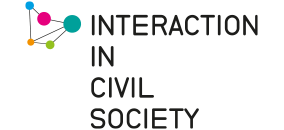
Dr. Rico Neumann
Postdoctoral Researcher
Mail: rneu@zedat.fu-berlin.de
Website:
linguistik.tu-berlin.de
Short Vita
I am a Postdoctoral Researcher at Technical University of Berlin. I obtained my Ph.D. in Communication at the University of Washington in Seattle. I also hold an M.A. from the University of Arizona in Tucson and a B.A. from the University of Leipzig. My main research interests center on intergroup phenomena from a political communication and mass communication perspective.
What I find exciting about this research initiative
Social cohesion is the foundation for a functioning and healthy society – the glue that holds society together – and it is continuously tested and challenged, especially in times of crisis. Given the complexity and dynamic nature of this concept, especially as it relates to conflict and interaction dynamics, social cohesion lends itself to be viewed and examined from an interdisciplinary lens, spanning both micro- and macro-level perspectives. As a communication scholar, I am particularly interested in examining the causes and consequences of eroding trust (in democratic institutions, in science, in journalism, in other members of society) against the backdrop of disrupted public spheres, which are shaped by an increasingly polarized and fragmented media environment, echo chambers and online filter bubbles filled with misinformation and disinformation. This project allows us to better understand how social cohesion is portrayed in public spheres, including the forces and trends that help or hinder cohesion, with implications on how to bring people together and help them engage with each other.
What my discipline can contribute to this research initiative
Communication research focuses on the study of discourses and message-related behaviors. It is therefore well-suited for empirically examining the role of media content as well as language and platform choices in shaping public discourse and our understandings of social cohesion. More specifically, intergroup communication scholarship offers insights on how communication provides information about our identification with groups in society, and how information about those groups and group memberships shape communication. Political communication concepts and frameworks help us illuminate the discourse of civil society actors vis-a-vis political elites, the media and the public, including their various interactions. From a methodological perspective, using text as data has a long research tradition in the Communication discipline: Combining quantitative and qualitative approaches to content analysis allows us to not only examine the broader trends and patterns of discourses of social cohesion but also the richly textured components and rhetorical nuances of that discourse and how they relate to civil society.

